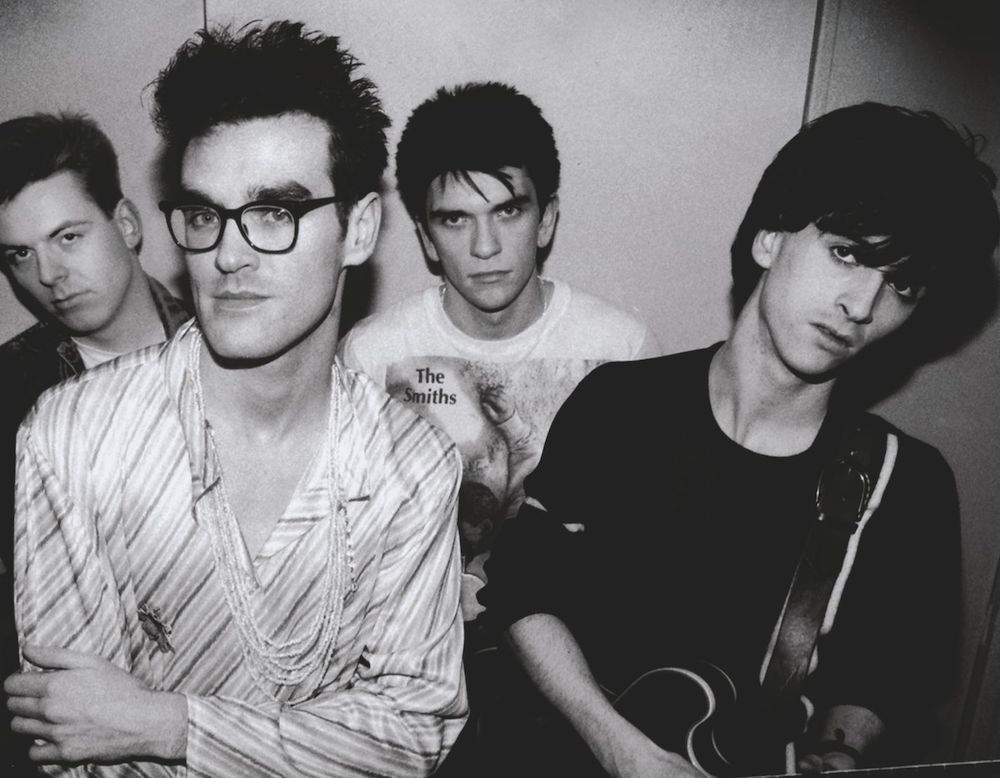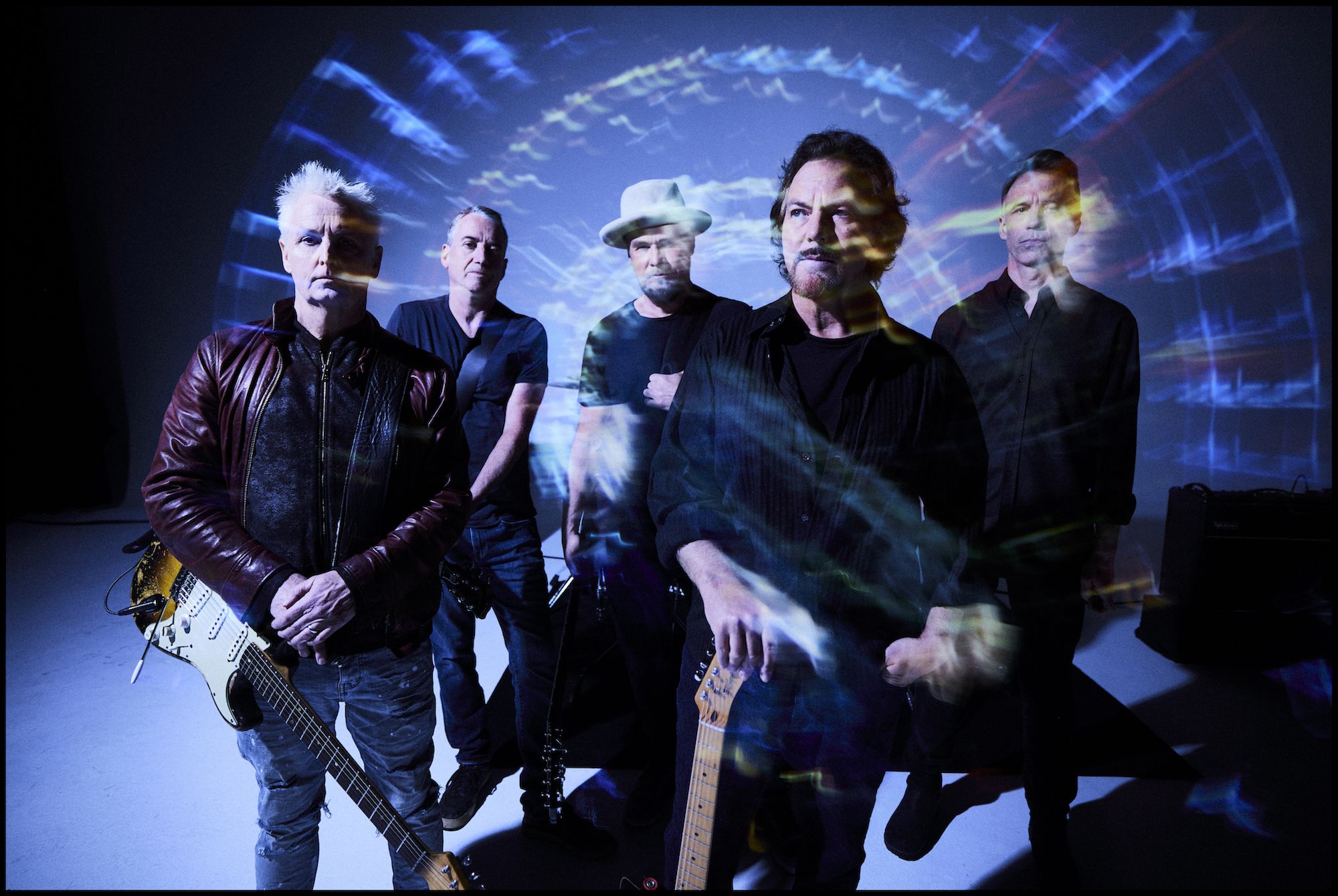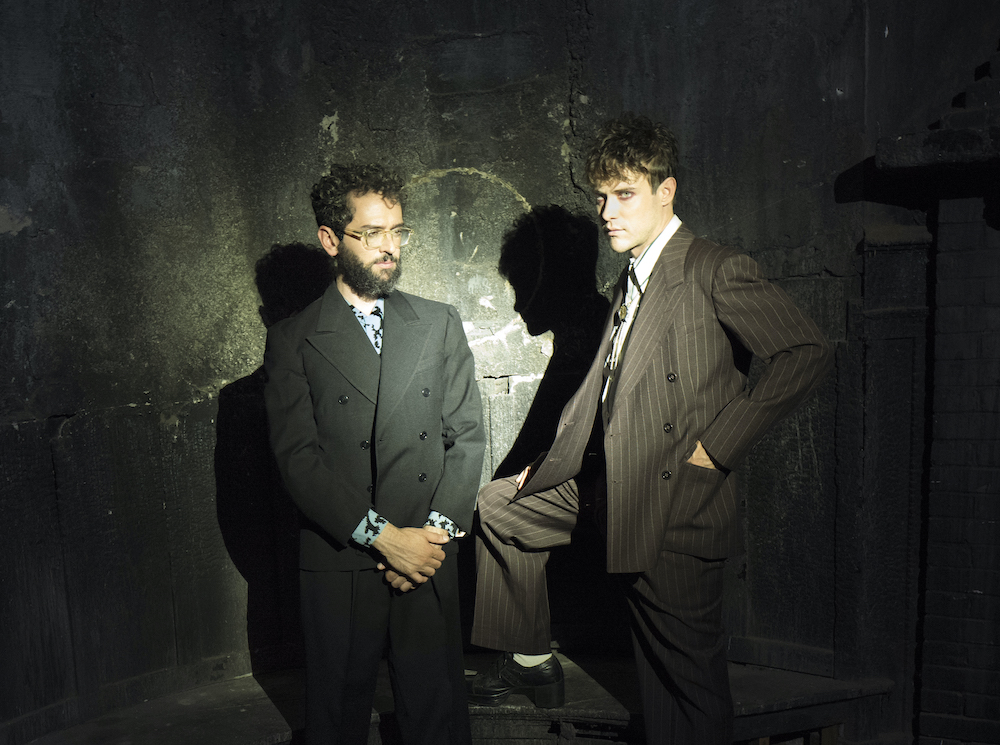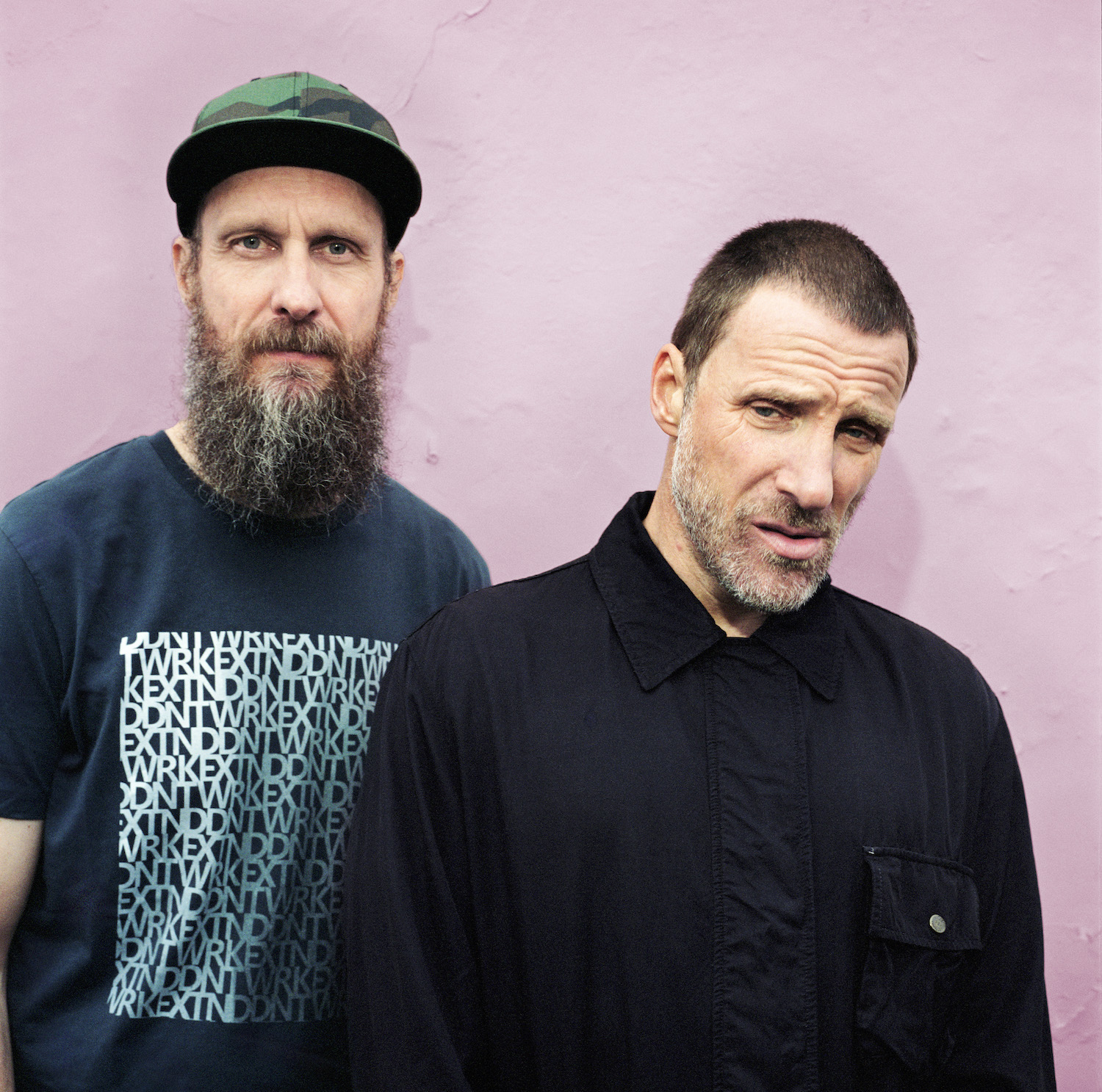The story goes something like this: Sheriff Kurt moseys into town just long enough to purge the spandex-clad outlaws before riding off into the sunset forever, leaving behind the Clinton Administration, Lollapalooza, and lucrative major label deals for flannel-flyin' underdogs everywhere.
It's a nice idea. And like most myths, there is some degree of truth to it. Unfortunately, the cultish deification of Nirvana has resulted in a conundrum shared by only a handful of others, including the Beatles and Elvis Presley: when legend and apocrypha impede the enjoyment of a body of work on its own terms, objective analysis becomes difficult, if not impossible; in this context, even playful assessments like "overrated" and "underrated" become inapplicable.
Lawsuits, elaborate conspiracy theories, hagiographic biographies, "biopics," posthumously-published diaries, tomb-raiding box sets, more lawsuits. Drugs, ulcers, guns. Reams have been written about Nirvana's legacy, and most of what has been published is disappointingly but necessarily typical, right down to an obligatory "influential wife meddles, destroys band" narrative. For a person who never wanted to be a rock star, Kurt Cobain's story sure managed to tick all the boxes.
Of course, very few of these things should have much to do with Nirvana's place on the continuum of rock and roll. All too often, fans and critics evoke Nirvana's songs in the form of citations supporting elaborate, unnecessary arguments. The songs should be discussed simply because they are good. Some of them are really good.
But this, too, presents another frustrating complication: as tempting as it is to try to de-personalize Nirvana's--Cobain's--music and focus on the work itself, such an undertaking is impossible, and anyway, it misses the point: by all accounts, Cobain the songwriter and Cobain the man are the same thing. Like 2Pac, Eminem, or John Lennon after the Beatles, Cobain's music is intensely, rivetingly personal; even when it wasn't strictly autobiographical, it still sounded like it was. For misfit teens and pre-teens who couldn't have possibly related to the things Motley Crüe or Warrant sang about, Cobain functioned as a beacon and necessary alternative, someone they could identify with. Even Nirvana's lyrics--often nonsensical, cryptic, or just plain dumb--articulated the sort of suburban, post-Reagan nihilism commonly associated with the Alternative Nation. Nirvana's lyrics are only bad if you're looking for something Cobain never promised: poetry.
Did Kurt Cobain change your life? If you're a music fan between the ages of 25 and 40, there is a very good chance that the reason you know about the Melvins, Mudhoney, the Vaselines, Earth, the Meat Puppets, the Wipers, Killing Joke, The Pixies, Scratch Acid, the Jesus Lizard, or William Burroughs is Kurt Cobain. Very few contemporary rock stars--Jack White being one lone exception that proves the rule--have so effusively and enthusiastically sung the praises of their forebears like Cobain. Understanding that Nirvana had the potential to provide his fans with a gateway to the life-changing music that inspired his own, Cobain became a most vocal ambassador of the underground when most others in his position might have put as much distance as possible between themselves and the ideas they stole. To thousands of kids in flyover country--who might not have known Black Flag from Black Oak, Arkansas--Cobain became the surrogate older brother or sister with a stack of well-loved punk 45s, or the record store clerk who talked you out of buying that EMF record and sent you home with a copy Doolittle tucked under your arm instead.
Twenty years ago today, Kurt Cobain died from a self-inflicted gunshot wound. The band--Cobain, drummer Dave Grohl, and bassist Krist Novoselic--left behind a paltry discography of just over 100 songs, more than half of which remained unreleased during the band's lifetime. Though Nirvana's widespread influence remains undiminished--try imagining Cloud Nothings, Deer Tick, or DIIV without them--to call Cobain's tragic death an incalculable loss is as much an understatement as it is a cliché. We will almost certainly never see another like him.
Many readers will note the conspicuous absence of Nirvana's most popular and enduring song from this list. For the record, I concede that "Smells Like Teen Spirit" is a great song (possibly the best song to ever rip off the Pixies), but the fact is, Nirvana recorded better ones. At least ten better, as a matter of fact. Here they are.
10. "School" (from Bleach, 1989)
It is well established that Nirvana milked the "soft-loud-soft" formula for all it was worth. This dynamic trick--whose origins are often attributed to the Pixies--would soon become an alternative rock cliché in the hands of many profoundly terrible bands. But it wasn't until Nevermind that Nirvana began regularly employing such arrangements; on their debut album Bleach, "loud-louder-loud" seemed to be a more accurate summation of the game plan. Bleach was not the first "grunge" album, but it's the definitive one, capturing Nirvana--more melodic than Mudhoney or the Melvins, darker than Tad or Soundgarden--in its primitive, nascent stage. While the bargain-basement sound of Bleach offers little indication that the album would soon be followed by the radiant sheen of Nevermind, it does, interestingly enough, predict the noisy, disgruntled In Utero four years later. "School" is a pop song bathed in pathos and bile, constructed from just two riffs and a mere fourteen words. Vocally, Cobain sounds legitimately damaged and dangerously feral. A repeated refrain serves as a verse, setting up a chorus whose only lyric--"No recess!"--expresses shock at the discovery that adulthood is merely a macrocosm of school, minus the swings and slides and sandboxes; a grim and somewhat chilling revelation.
9. "Come As You Are" (from Nevermind, 1991)
There is no need to speculate on Cobain's influences: other bands were often his favorite interview topic, and he was never shy about pointing out what he ripped off from whom. Cobain was also a gifted pop songwriter who knew the value of the elusive "hook" even when he was singing about lobotomized actresses, herbal abortives, and eating black cancers. Inspiration often came in the form of the catchiest parts of the records he loved. In the case of the great "Come As You Are," that inspiration was Killing Joke's song "Eighties." Cribbing heavily from the tune, Cobain nevertheless proves Oscar Wilde's evergreen adage: "Talent borrows, genius steals": "Come As You Are" is one of the most evocative and well-developed songs in Nirvana's catalog. Cobain's guitar, drenched in a tacky chorus effect, serves the song's saturnine, surrendering feel, while a tremulous guitar solo, wet, cold and shivering, lollygags around the song's indelible melody line. Killing Joke needn't have been butt-hurt: if imitation is, in fact, the sincerest form of flattery, "Come As You Are" is likely the best compliment they ever received.
8. "Negative Creep" (from Bleach, 1989)
The shadow of the Melvins looms large over Nirvana. Melvins drummer Dale Crover performed on the demos that convinced Sub Pop to sign Nirvana; years later, Melvins frontman Buzz Osborne would introduce Cobain to drummer Dave Grohl. But it is to the sound of the Melvins--grinding, depressive hard rock sludge--that Nirvana owes it's greatest debt. "Negative Creep" might have been conceived as a thinly veiled homage to the band (though its chorus of "Daddy's little girl ain't a girl no more" directly references Mudhoney), but Nirvana's chilling ode to social awkwardness is Cobain at his bloodletting, lung-shredding best. Over a thick palm-muted chug, Cobain, sounding like a cross between Lemmy and a gargoyle, acknowledges his position as a shadowy outsider--even revels in it. The "negative creep" of the song's title is under no allusions, and offers no apologies; he's here to weird you out. The entire song sounds like a coal car gathering speed and careening recklessly toward Main Street, with each slide up or down the guitar neck simulating the sudden jerk of a wheel violently nudging some object or person out of the frame. It's a sound as beautiful as a rock in a cop's face.
7. "Sliver" (from Incesticide, 1992)
Originally released as a single in late 1990, "Sliver" would later become a highlight of Incesticide, Nirvana's 1992 collection of singles and rarities. The much beloved song would go on to become one of the band's most popular non-album tracks. The origins of "Sliver," recorded on borrowed time and with borrowed gear, are somewhat legendary: When Tad, in the studio with producer Jack Endino, left for a meal break, the members of Nirvana--Cobain and Novoselic plus Mudhoney's Dan Peters--seized the opportunity by commandeering the band's equipment and knocking out "Sliver" in an hour. The song is classic verse-chorus-verse Nirvana, and almost a prototype of the more palatable sound of Nevermind: a squeal of feedback advances a loud, repetitive chorus, Cobain shrieks the latter verses in a higher octave, and the whole thing is irresistibly catchy. The lyrics, too, are vintage Cobain: the narrator--a petulant child--pitches a fit that hints at some malefic injustice but omits pertinent details; the only actual discomforts described in the song are an injured toe and some presumably overcooked meat. What transpires, exactly, between the narrator's postprandial nap in front of the tube and his waking in his mother's arms? Is it worth noting that the "dad" introduced in the song's first line never reappears? Cobain delighted in ambiguities, and "Sliver" is one of his more compelling brainteasers. It may also be alt-rock's finest tantrum.
6. "Lithium" (from Nevermind, 1991)
Say what you will about Dave Grohl, but it's difficult to imagine the Nirvana of Bleach taking the world by storm. A veteran of the DC punk scene and former member of hardcore band Scream, Grohl, following a tip from Buzz Osborne, flew to Seattle to audition for Nirvana. The three men clicked immediately: in Grohl, Cobainand Novoselic found a drummer sympathetic to the band's punk roots, but proficient enough to help them realize their fledgling pop aspirations. In fact, a good deal of Nevermind's distinctive primal power can be attributed to Grohl's lowercase-classic rock drumming: compare the Nevermind version of "Lithium" to the earlier take recorded during the aborted Smart Studios sessions (officially released on 2011's extravagant "super deluxe" reissue of Nevermind). The Smart Studios version is distinguished by the presence of Bleach drummer Chad Channing, as well as an acoustic guitar track and a less imaginative, root note-heavy bass line from Novoselic. Most notable, though, are the drums: if Channing beat the drums, Grohl demolished them. Though recorded to a click track, "Lithium" benefits greatly from producer Butch Vig's meticulous screw-tightening, which turns this song of post-traumatic spiritual crisis into something more Cars than Karp.
5. "On A Plain" (from Nevermind, 1991)
In the context of Cobain's suicide, a line in the chorus of "On A Plain"--"love myself better than you"--can't help but take on some degree of retrospective significance. Putting aside the cliché of characterizing suicide as a "selfish act," persons combing Nirvana's history for songs or incidents that would appear to foreshadow Cobain's death were certain to find far more explicit examples than this. And yet, the ambiguity of this simple declaration is difficult to ignore. Does the singer selfishly, narcissistically love himself more than he does anyone else, or does he love himself with greater ability--better--than someone else could? The conspicuous absence of the pronoun "I," too, implies reluctance to wholly commit, for the same reason it is easier to say "love you" than "I love you." "On A Plain" is one of the more triumphal-sounding numbers of Nevermind, boasting a great Beatles-y middle eight and some of Grohl's most aggressive bashing; even the title, perhaps a not-subtle reference to being high, suggests optimism, control, the view from a vantage point. But when the song's haunting harmony vocals remain as the rest of the song gradually fades, the effect is eerie: the voices appear to get louder as the sound of the band, still playing, becomes distant, before disappearing entirely. I submit "On A Plain" as the spookiest song in Nirvana's catalog.
4. "About A Girl" (from Bleach, 1989)
As much as he tried to portray himself as a punk, Kurt Cobain always sounded comfortable embracing his inner McCartney. In many ways, it was Cobain's not-insubstantial strengths as a melodist that immediately distinguished him from the flock. Detractors will often point to the dozens of Nirvana contemporaries who were just as (or more) deserving of the attention being paid Nirvana, but few had songs as classically beautiful as "About A Girl." Even Cobain seems to have been aware of the song's power: it remained a staple of Nirvana set lists throughout the band's career. A snappy tune about relationship turmoil (like many of Cobain's songs, autobiographical), "About A Girl" remains one of the only openly commercial songs in Nirvana's catalog. Cobain plays it entirely straight, with no attempts at sabotage and no lyrics about reproductive glands or blowtorches. The jangly, rudimentary guitars aim for R.E.M. but land somewhere closer to Beat Happening, while Cobain's plangent vocal is blatantly, outwardly sweet, even as it strains. Included on the otherwise prickly Bleach, "About A Girl" sticks out like an overturned bag of Skittles left on the killing field.
3. "Drain You" (from Nevermind, 1991)
Steve Albini called the production of Nevermind a "hack job"; if it was, it was the same sort of hack job that produced In Color, an album by one of Cobain's favorite bands. Cobain once credited the movie Over The Edge--a masterpiece of juvie-rebellion whose trivial claim to fame is that it introduced the world to a young actor named Matt Dillon--as a key influence; "Drain You" is the closest Nirvana ever got to writing the sort of song that might have fit on that movie's great soundtrack alongside the Ramones, The Cars, and, yep, Cheap Trick. Recorded at Sound City Studios, the facility that produced Neil Young's After The Goldrush, Fleetwood Mac's self-titled album, and Cheap Trick's Heaven Tonight, among others, Nevermind's commercial shine was no accident. Butch Vig, fresh from recording Smashing Pumpkins' seminal album Gish, was in many ways the anti-Albini: an auteur, a meddler. Indeed, Vig's finessing allowed Nevermind to be the pop album it was conceived to be even before Vig got involved. In this way, he became a facilitator, even when it meant resorting to underhanded tactics, like tricking Cobain into overdubbing his guitar on "Drain You" by requesting unnecessary additional takes, and then discreetly piling them on top of one another. The result is one of Nevermind's best songs, a potent and powerful blare complete with a menacing chorus and a decidedly ‘out' middle section worthy of Sonic Youth. The winding, unconventional vocal melody is even exonerates the song's pun-y lyrics ("With eyes so dilated I become your pupil"). If In Utero and Bleach acknowledged the punk ancestry of the band once called Fecal Matter, songs like "Drain You" exposed the lesser-heralded precursors of the band's sound: glossy power pop and classic rock. Less than two months after it was released, Nevermind would be certified platinum; since then, it has sold over 30 million copies worldwide.
2. "Serve The Servants" (from In Utero, 1993)
"Teenage angst has paid off well / now I'm bored and old" is one of the greatest opening lines of an album in the history of rock and roll. Like John Lennon's similarly meta "God," "Serve The Servants" is the sound of ritual catharsis. Anchored by a whirling, ominous riff, "Serve The Servants" finds Cobain famous, disgusted, and naming names; NME might have said it best in Brian Willis' 1993 cover story: "In Utero is Kurt's revenge." The idea of a 26-year old characterizing himself as "bored and old" might seem tragic, but, from Bo Diddley to The Who, it's a sentiment almost as old as rock and roll itself. In an interview with Flipside published in June 1992, Cobain jokingly likens Nirvana's overnight success to the Beatles, before admitting that he hoped to "eventually turn into Pete Best--just brush [his newfound popularity] under the carpet and forget about it." This ill-ease manifests itself as restlessness in the sound of many of In Utero's caustic, lacerating tracks; "Serve The Servants" even upends the expected Nirvana formula by following a loud, shouted verse with a softer, mellower chorus. Grohl's drums seem to fill the room, in marked contrast to the punchy, compressed percussion sound on Nevermind. "Serve The Servants" kicks off Nirvana's triumphant final chapter with an explosion, and one of the best songs they ever committed to tape.
1. "All Apologies" (from MTV Unplugged In New York, 1994)
Though Nirvana will undoubtedly be remembered for "Smells Like Teen Spirit"--a game-changer to end all game-changers--the beautiful "All Apologies" is the Nirvana song that belongs in the time capsule. If "School" was the sound of an alienated young person entering adulthood and finding it a disappointing continuation of high school's cliques and social demands to conform, "All Apologies" is that same person older and wiser, but even worse off, bleakly reducing adulthood to two simple words: "married / buried." The reason that the MTV Unplugged performance--later released as MTV Unplugged In New York--endures is twofold: First, having been recorded and then repeatedly broadcast on MTV following Cobain's death, MTV Unplugged supplies an iconic image to accompany the legend, a visual crystallization of an epoch. The result is a kind of wide-scale synesthesia: for many of us, it is impossible to hear "All Apologies" without picturing Cobain in his grey sweater, hunched on a stool like one of the Skeksis from Jim Henson's The Dark Crystal. This nostalgic association, more than any other reason, is why you are likely to hear the MTV Unplugged version of "All Apologies" on classic rock radio instead of its studio counterpart. Cobain leaning into the microphone with downcast blue eyes, his posture more "middle school truant" than "rock star," is Gen-X's Kennedy waving from the motorcade, Neil Armstrong bouncing in zero gravity, or Ed Sullivan announcing the Beatles. The second, less cynical reason that the MTV Unplugged version of "All Apologies" endures is that it is simply a superior performance than the one found on In Utero. Taped on November 18, 1993, "All Apologies"--and MTV Unplugged In New York in general--cruelly teases at an alternate future, one in which Cobain survives and Nirvana reinvents itself as a great acoustic band. Even before the subsequent popularity of the MTV Unplugged performance, this trajectory seemed possible, even likely; after all, both the MTV Unplugged and In Utero versions of "All Apologies" feature a cello, an addition to the band's sound that might have seemed unimaginable only three years earlier. The song itself is one of Cobain's most lyrically straightforward and revealing: "I wish I was like you / easily amused" could just as easily address his fans as his infant daughter. The MTV Unplugged performance is also notable for a small but significant lyrical ad-lib: On the In Utero version of "All Apologies," Cobain sings the koan-like lyric "All in all is all we are"; on the MTV Unplugged version, he sings "all alone is all we are." Less than half a year later, Cobain would be dead at only 27 years old.
Listen to our playlist via Spotify.
[Photo by Jeff Kravitz/FilmMagic, Inc.]






